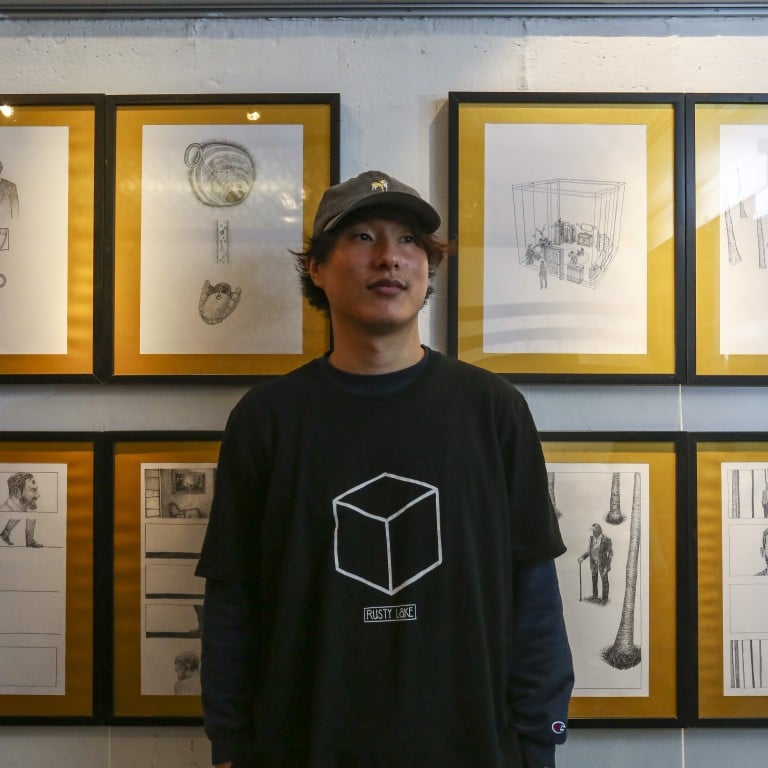
How a Hong Kong manga artist caught the eye of the Dutch company behind popular gaming app Cube Escape
- Lau Kwong-shing faced identity problems after relocating back to Hong Kong from Japan, and dealt with cynicism towards his comics dreams
Artist Lau Kwong-shing is taking in a surreal moment as he sits in front of a wall adorned with pencil sketches while dozens of fans line up for his autograph. He is holding a solo exhibition at Gallery Z in Shek Kip Mei.
On his career milestone, Lau, 29, a college dropout, says: “A former teacher came up to me and said: ‘You’ve really grown up’.
“And to think that just hours before the event, I was terrified that no one would show up.”
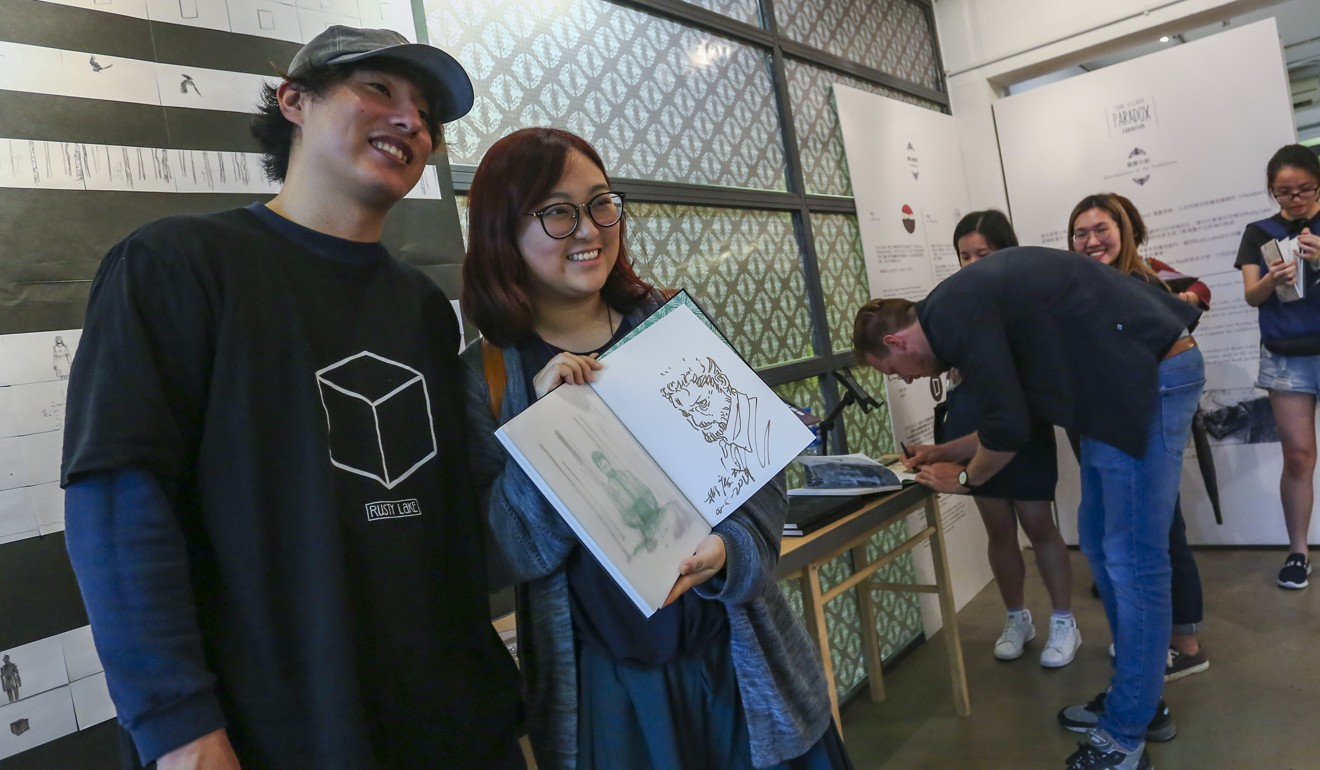
The exhibition, which will last till May 18, represents seven years of hard work as a cartoonist for Lau, culminating in his first published comic book Cube Escape: Paradox, based on a mobile game with the same title. The 100-page work is produced in collaboration with Rusty Lake, the Dutch company behind the game, and which helped present the ongoing event.
While Lau has come a long way from his early days in the craft where he had to scrimp and divide a HK$4 pack of uncooked rice into four meals a day, his road to success highlights the plight of aspiring local artists who rarely get noticed by big companies.
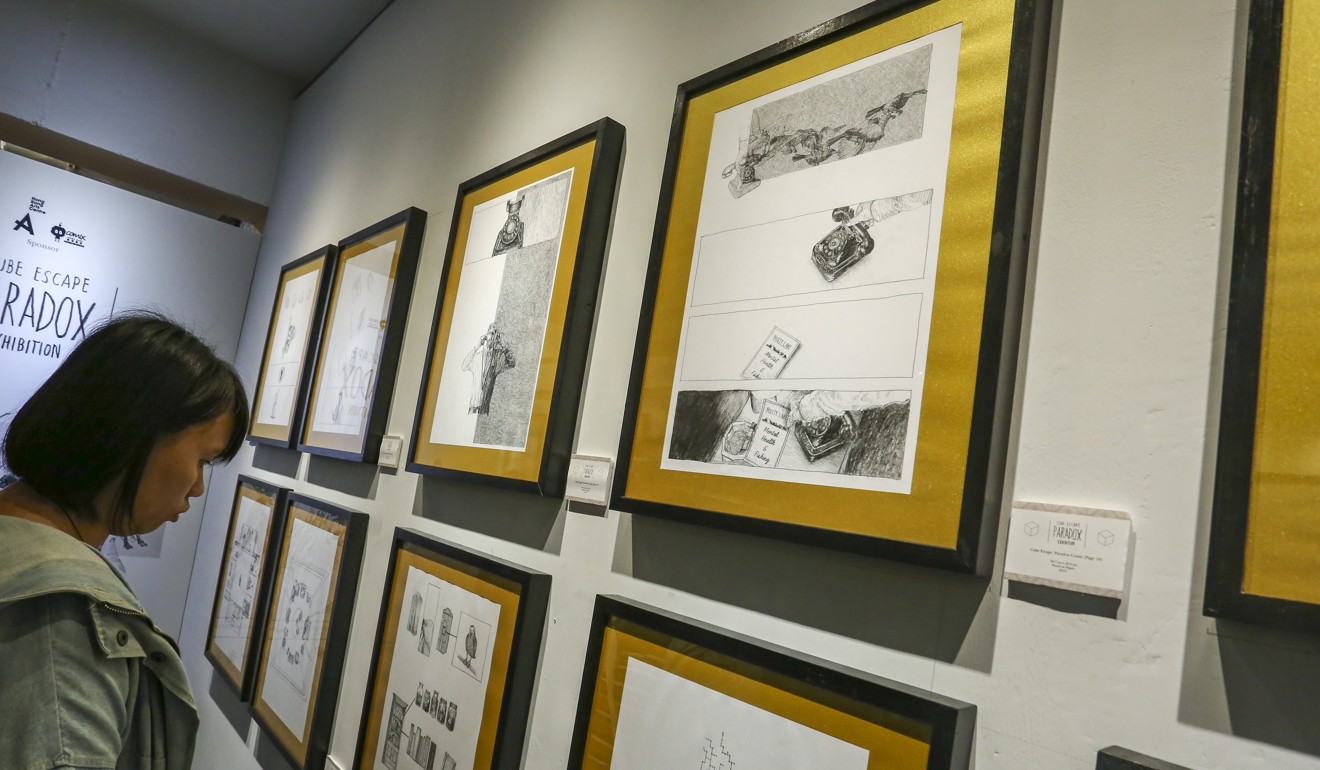
Created in 2015, Cube Escape is a series of room escape games where players follow the investigation of an amnesiac detective to solve mystery crimes. With 13 apps in total, the game has 30 million downloads and half of its fans are from China, which includes Hong Kong and Macau.
Lau’s journey began in 2017, when he sent a 16-page fan art with comic characters from the game to the developer’s social media account, quickly attracting attention from the company and gaining widespread popularity among fellow fans.
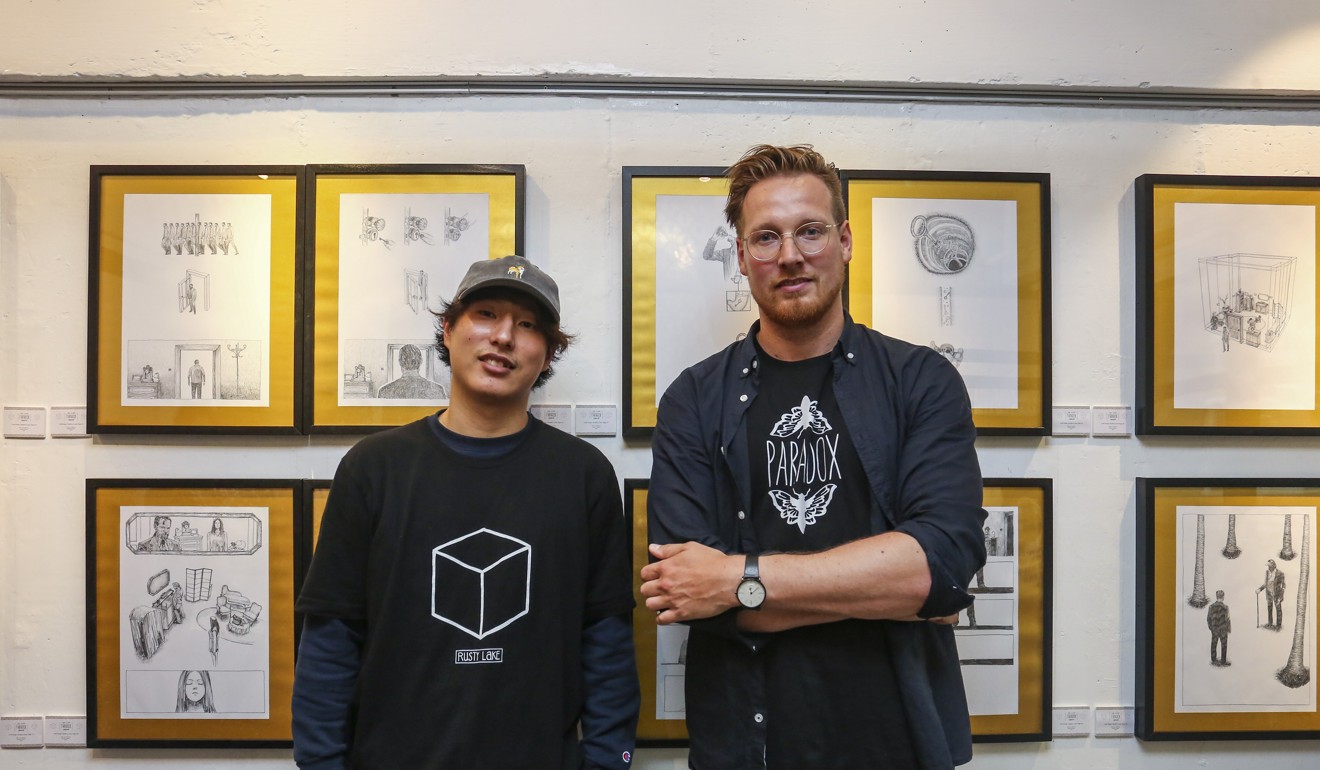
Robin Ras, co-founder of Rusty Lake, says: “The whole fan base was amazed, and people were asking for a sequel. My mind was blown too, just thinking: who is this guy?
“His work is so detailed, [with] a unique kind of atmosphere. It just stands out somehow.”
Lau, who spent two weeks on the piece, said he not only intended it as a tribute to the game but also to seek his own art style.
According to Ras, Rusty Lake reached out to Lau when they decided last year to produce derivative works based on the game, including films and comics. “I feel grateful and honoured to see him making a huge step and for us to help a fan artist rise from a small community, because that is how we grew as a company.”
Fellow artist Siumou Chow, who started out by self-publishing 10 fan art comics since 2007, says it is quite rare to see such doors open for her peers locally, because the city’s manga publishers and game companies lack resources to support this.
“Most of us do this for love, sometimes also to practise our drawing skills and cultivate a fan base,” Chow says. She estimates that there are about 500 fan art groups based in the city.
For Lau, the call-up from Cube Escape was a turning point in his career, finally giving him a professional platform to showcase his talent. He was paid HK$30,000 and received 50 per cent of revenue from book sales, but the exposure he got was priceless.
Lau is currently in talks with a French publisher about collaboration.
“I’ve been in love with comics since childhood, and I knew I wanted to be a cartoonist at six,” he recalls. At the age of two, Lau had moved to Kyoto, Japan with his parents and brother, during which its manga culture became part of his identity.
I’ve been in love with comics since childhood, and I knew I wanted to be a cartoonist at six
Lau remembers feeling “shocked” and “confused” when the family had to return to Hong Kong in 1999 after his father’s Chinese restaurant business folded. “Until then I always thought I was Japanese, and I felt as if I was forced to leave.”
Finding it hard to adapt to school life and the language in Hong Kong, the then nine-year-old Lau immersed himself in Japanese manga while longing for the land where he grew up.
His dreams, however, were often dismissed by local teachers and parents, who “disrespect manga and link it with eroticism and violence”, according to Lau.
“My mother once told me: Hong Kong is a realistic place, you have to seriously think about whether you want to become a cartoonist.”
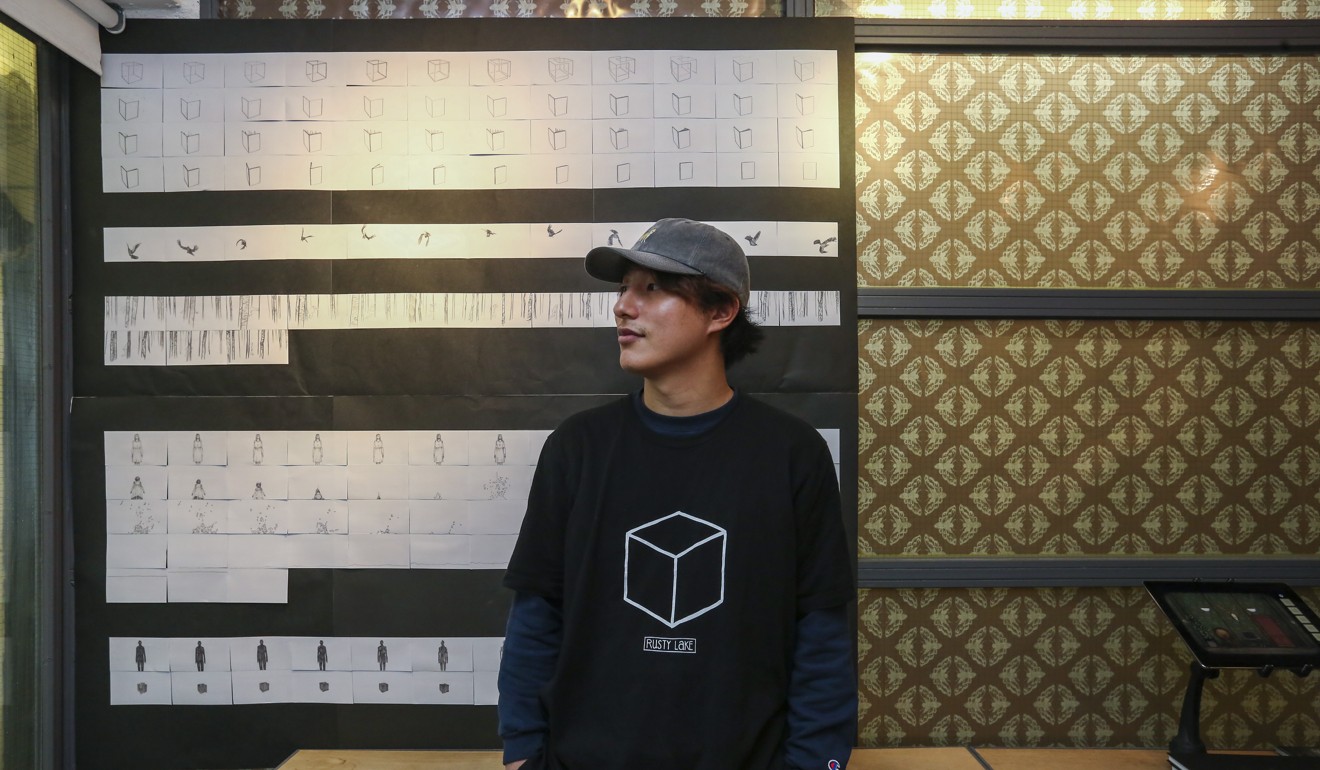
Despite self-doubt and cynicism from others, Lau enrolled himself in an art programme at Chinese University. But he later dropped out in his final year because he “got sick of how society only values degrees”. “I thought I could prove myself solely through my art,” Lau says.
From 2012 to 2016, he had to survive on a monthly income of HK$7,000, contributing short manga stories to local magazines while working on illustrations and special effects projects for movies.
“I used to split a pack of uncooked rice worth HK$4 into four meals,” Lau recalls. “By 2016 it seemed like I was making no progress during all these years.”
But the clouds would part the following year, when he received an invitation by the Hong Kong Arts Centre to attend a cartoon exhibition in France. In awe of the free, flexible and distinct form in European comics, he strived to develop a different style, with simpler visuals, fewer dialogue and anti-dramatic storylines, which would later capture the eye of Rusty Lake.
“Perhaps it no longer matters who I learn from. I am exploring my own way,” he concludes.

